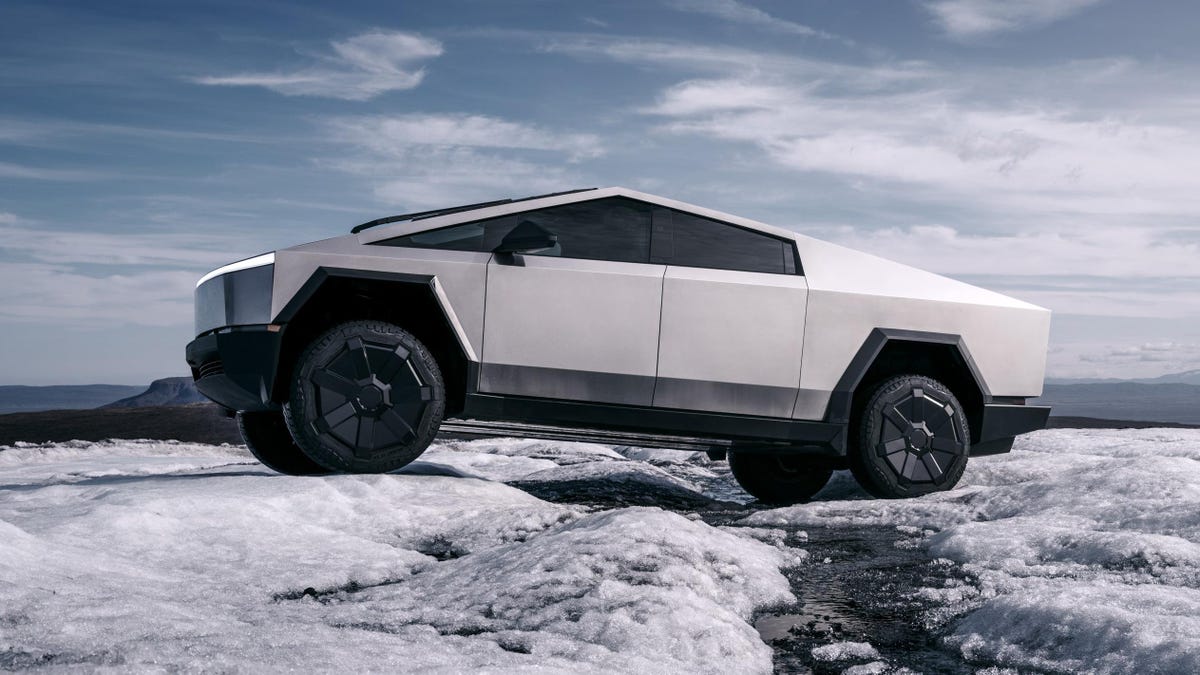The Tesla Cybertruck sucks. It’s been a reliability disaster, can’t even survive a simple car wash, is incredibly difficult to repair, has edges that are so sharp owners have ended up in the hospital from their injuries, and it looks like it was designed in a lab to crush pedestrians. It also hasn’t been crash-tested and likely never will be. The thing is, though, the Cybertruck isn’t the only car on the road that’s never been crash-tested. As Consumer Reports recently explained, that’s the case for a lot more cars than you might expect.
Before you start freaking out, the National Highway Traffic Safety Administration and Insurance Institute for Highway Safety do still test the vast majority of new cars:
A NHTSA spokesperson says the agency provides crash-test ratings for 86 percent of new vehicle models. In 2020, the IIHS crash-tested over 80 percent of mainstream vehicle models—which represents more than 97 percent of all passenger vehicles sold. Some vehicles that have not been crash-tested have been evaluated for child car seat fit, headlight visibility, rollover risk, or advanced safety features.
A NHTSA spokeswoman told CR that the vehicles the agency chooses are “a broad cross section that will help consumers make purchasing decisions about the vehicles that best fit their needs.” Similarly, IIHS spokesperson Joe Young told CR that the group focuses on the most popular vehicles. “Our budget for crash testing vehicles is limited so we try to target big sellers,” he says.
For example, neither NHTSA nor the IIHS have plans to test the Cybertruck. “While it has certainly created a lot of buzz, it’s unlikely we would invest resources to test it unless it were selling in numbers comparable with other popular large pickups,” Young says.
With their limited resources, there are only so many cars that NHTSA and the IIHS can crash every year, so it makes sense they would focus on the most popular models. Still, that does mean that some relatively common cars slip through the cracks. From the Porsche Macan to the BMW 7 Series and even the Land Rover Discovery, many luxury cars and other low-volume models have never been crash-tested.
Automakers are still required to meet minimum crash safety standards, so there’s no reason to assume your new Macan is unsafe, but as Consumer Reports points out, it does leave buyers in the dark when they’re shopping for new cars. NHTSA does randomly test cars to make sure they aren’t cutting corners, but you still have to put a lot of faith in the automakers themselves to ensure their cars are safe.
With established automakers, that’s probably not a huge concern. “We often conduct up to 15,000 realistic crash simulations and about 150 vehicle crash tests to make an entirely new vehicle ready for customer operations,” a Mercedes-Benz spokesperson told Consumer Reports. Similarly, a Porsche spokesperson said that while it’s up to NHTSA to decide which cars to test, it “rigorously designs and tests its vehicles to confirm they comply with” federal regulations.
Newer startups, however, require you to put a lot of faith that they didn’t cut corners and that their internal testing is adequate to ensure your safety. And then, of course, there’s Tesla with the Cybertruck.
As a private organization, there’s only so much that can be done about getting the IIHS more resources, but considering the size of the federal budget, you have to wonder why NHTSA doesn’t have a big enough budget to test the Macan, much less the Cybertruck. It just makes sense that consumers should know exactly how safe their new car is even if it’s a relatively low-volume car. If that means giving NHTSA a couple million dollars in its budget to do more testing, that would only be a good thing.
There’s a lot more to it, so head on over to Consumer Reports to give the whole article a read.

